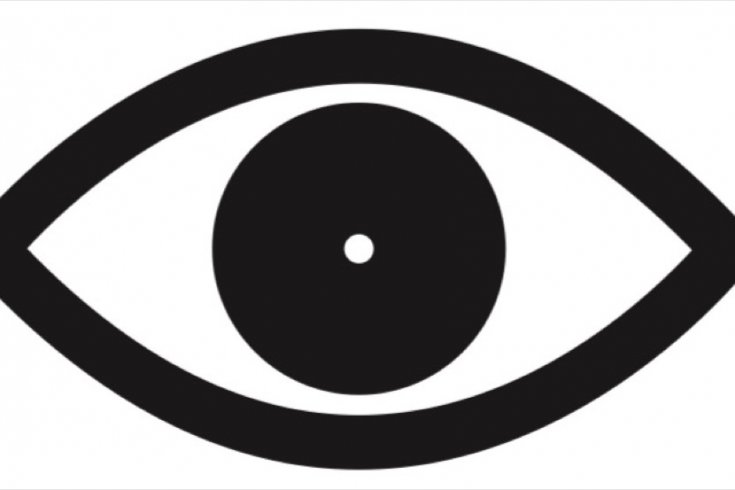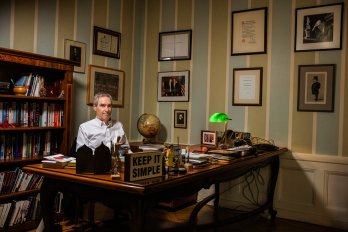
It always takes long to come to what you have to say, you have to sweep this stretch of land up around your feet and point to the signs, pleat whole histories with pins in your mouth and guess at the fall of words. —Dionne Brand, “Land to Light On”
Toward the end of February, Bill Cameron gave me a call. “I’ve got the story,” he said, “and want to hand-deliver it. Are you free for a glass of wine later this afternoon?”
Bill arrived around 5 p.m. armed with a large fact-checking package and “Chasing The Crab,” his article about fighting cancer (page 42). He went into offices and through the central news pit area, wishing everyone well, shaking hands, saying hello. His movements were slow, but not tentative, and his mood, as always when he came to visit, was upbeat. He had walked down to our offices, and was proud of the fact. Fifteen minutes later, we retired to a bar around the corner for that glass of wine and a long chat.
“Busy shop,” Bill said. “If you need help, give me a call.”
Settling in, his thoughts canvassed the globe. Headlines and op-ed pieces, he mused, were suggesting the birth of a new Washington consensus: solicit partnerships, be charming, avoid boasting. Indeed, in the Middle East, the testing ground of President Bush’s quasi-religious thesis that all peoples are predestined to be free and to embrace democracy, good news was breaking out all over, and I got the sense, listening to Bill, that he’d like to be on the ground assessing the competing theses: Were the changes in Egypt, Lebanon, within the Palestinian Authority organic or the result of outside pressure? Were real moves being made toward more open societies and more transparent governance? Our walk through international affairs caused him to remember fondly his “favourite work environment,” The Journal, cbc television’s flagship news magazine. Canadians of a certain generation will, I trust, remember Bill’s authoritative and mellifluous voice reporting from the Middle East, Croatia, Rwanda, and other war zones, always delivering the news and pointing out larger patterns.
We agreed that Washington, smarting from its premature declaration of “Mission Accomplished” in Iraq, and daily witnessing the suicidal resolve of the insurgency there, was playing it cool. While pundits weighed in with “I told you so” editorials, from the US administration there were only muted suggestions that the Iraqi election was spreading the franchise across other desert sands and little hint of dictators toppling like dominoes. Instead, the cerebral, now ever-smiling and newly chic Condoleezza Rice touched down in Israel and European capitals to “lend support” to those fighting terrorism, suggesting that the position of US Secretary of State was that of bridge-building global citizen, not unilateral bulldozer.
Bill segued easily from the Middle East to China to matters closer to home. An “emergent colossus,” he called China. “Watch it.” Chiding me for missing the follow-up on the Omar Khadr story and the Liberal government’s “responsibility for abandoning this Canadian citizen for three years” at Guantanamo Bay, Bill’s nose for news, a developing story, and narrative sense was as acute as ever. But on this day, he was circumspect, not drawing any conclusions. Regarding US-Canada relations, he said: “There are changes, no doubt, but I’ve been too preoccupied to see patterns.” In my too-brief dealings with Bill, he was the consummate pro, never saying more than he knew, always thirsting for more facts, always abundantly generous.
“There are two pieces I want you to consider and I can get to work on them soon,” he said, “but first let’s talk about ‘Chasing The Crab.’ ” We ordered a second glass of wine.
As he had done before, he took me through the story. The arc had changed somewhat, he allowed, because of new findings, more research, travel, and, in this instance, the pressures of time. In that sense, I thought, it was no different from the other three contributions Bill had made to the magazine—never about imposing a thesis, only about seeking truth. That said, this is Bill’s story and it is an intensely personal one. “It’s strange,” he said leaning forward, “but I’m very fond of this piece.” We agreed to meet in four days to go over it.
That meeting never took place. As February turned into March, Bill’s heroic quest for life hit a road bump he couldn’t navigate. He went into hospital for another round of surgery and recovery. With the help of his wife, Cheryl, he somehow found time to get to his computer, consider the edits, and finish the article. The result is enclosed.
Bill Cameron, a great writer and broadcaster, and a man of discriminating humour and taste, lost his battle with cancer of the esophagus around midnight on March 11, 2005. May he rest in peace, remembered fondly by all those who worked with him, knew him, heard him deliver the news.


